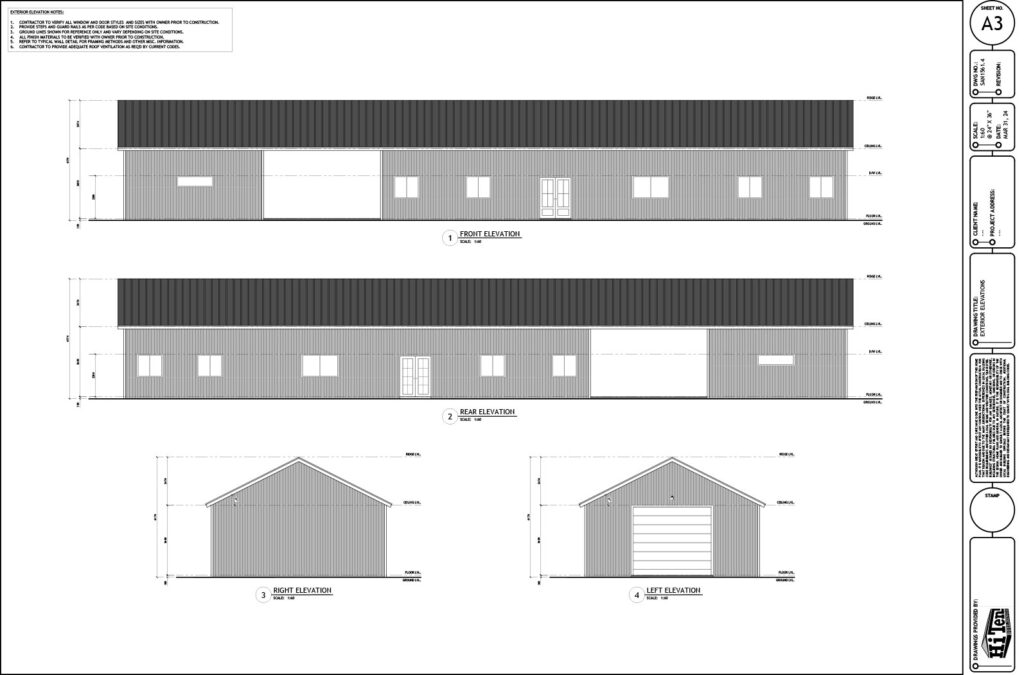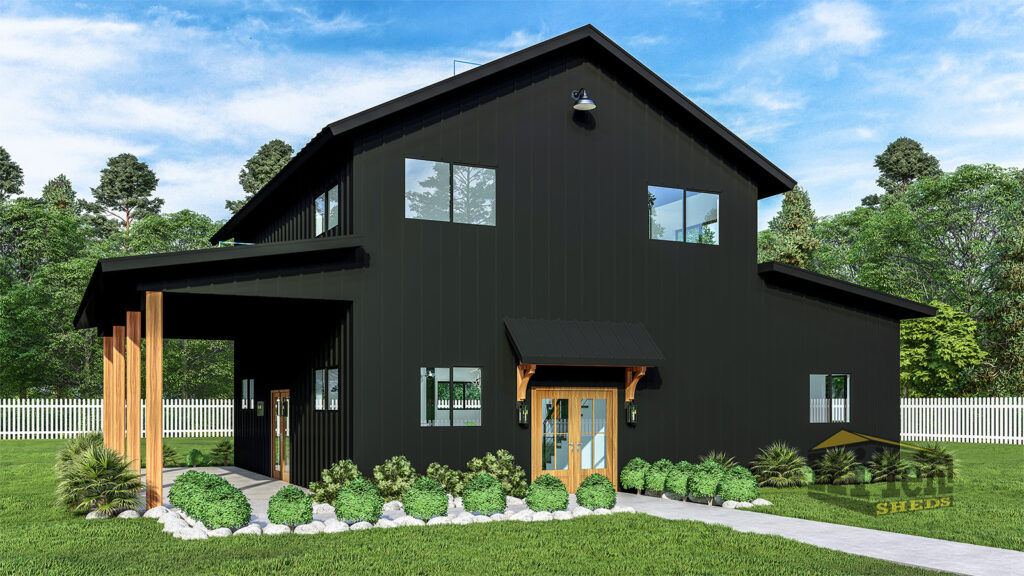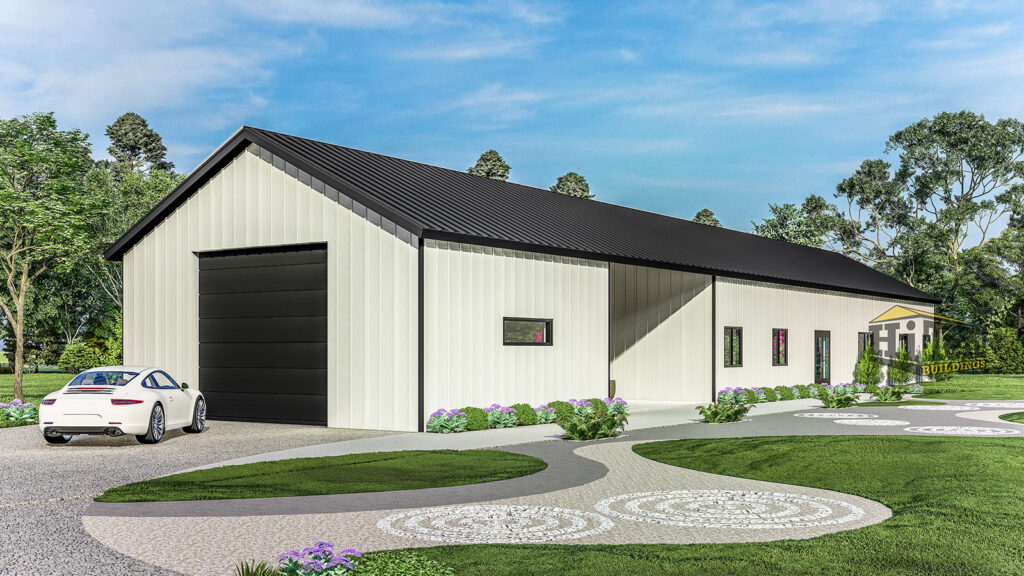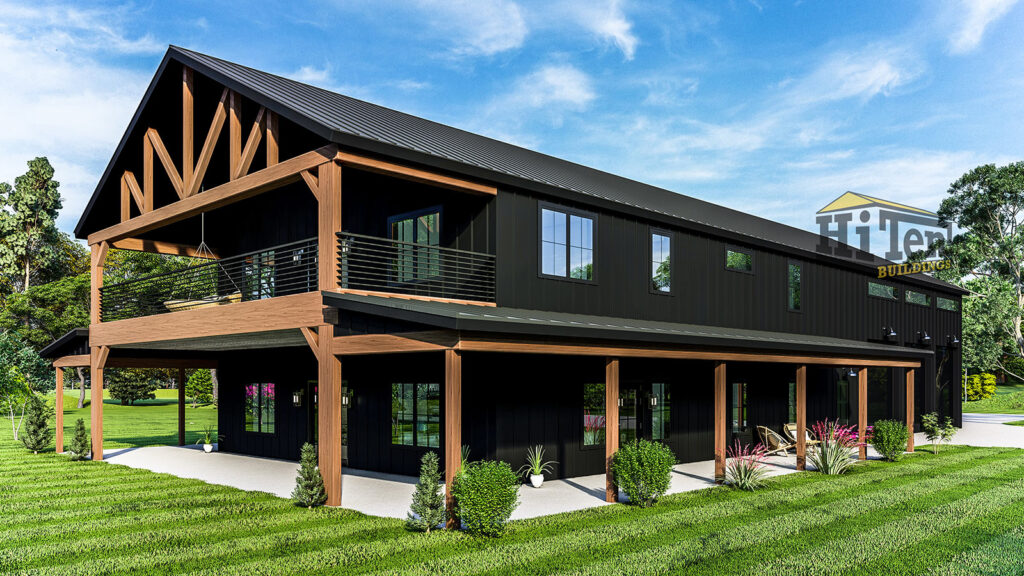Land Buying Checklist for Acreage | 50+ Points | Shed Homes
Buying acreage land for your shed home is exciting, but it’s also where the biggest and most expensive mistakes happen. This checklist helps you identify opportunities, avoid costly surprises, and make informed decisions before you sign the contract.
How to use this checklist: Print it out or save it digitally. Take it with you when viewing properties. Use it to ask the right questions of real estate agents, council, and builders. The more boxes you can tick confidently, the better your land choice.
Section 1: Legal & Title (8 Points)
1. Clear Title
✅ Title search shows no encumbrances, caveats, or disputes
💡 Solution: Order a title search ($30-$50) before making an offer
2. Correct Zoning
✅ Land is zoned for residential use (Rural Residential, Low Density Residential, or similar)
💡 Solution: Check council zoning maps online or call council planning department
3. Easements Identified
✅ All easements marked on title (power, water, drainage, access)
✅ Easements don’t prevent building in your preferred location
💡 Solution: Easements shown on title search; confirm with surveyor if unclear
4. Covenants & Restrictions
✅ No restrictive covenants limiting shed homes or steel buildings
✅ No minimum build size that exceeds your budget
✅ No architectural approval requirements from estate body corporate
💡 Solution: Request Section 32 (VIC) or Contract of Sale documents showing all covenants
5. Lot Size Suitable
✅ Minimum 2,000m² (half acre) or larger for comfortable acreage living
✅ Large enough for home + shed + future expansion
💡 Solution: 4,000m² (1 acre) is ideal for shed home + separate workshop
6. Boundaries Clearly Defined
✅ Boundary pegs visible or surveyor can relocate them
✅ No boundary disputes with neighbors
💡 Solution: Hire surveyor ($800-$1,500) to confirm boundaries before purchase
7. Access Rights Confirmed
✅ Legal access to public road (not landlocked)
✅ Right of way documented if shared driveway
💡 Solution: Check title for access easements; confirm with conveyancer
8. Native Title & Heritage
✅ No native title claims affecting the land
✅ No Aboriginal or European heritage overlays
💡 Solution: Council planning certificate shows heritage overlays; native title search via NNTT
Section 2: Council & Planning (10 Points)
9. Building Permit Likely
✅ Council confirms residential building is permitted use
✅ No known reasons permit would be refused
💡 Solution: Request pre-lodgement meeting with council ($0-$200) before purchase
10. Setback Requirements Known
✅ Front, side, and rear setbacks documented
✅ Setbacks allow your intended home size and placement
💡 Solution: Council planning department provides setback requirements by zoning
11. No Environmental Overlays
✅ No environmental protection zones limiting clearing or building
✅ No koala habitat or endangered species overlays
💡 Solution: Council planning certificate shows all overlays; request before purchase
12. No Landslide or Steep Slope Overlays
✅ Land not in landslide risk zone
✅ No steep slope overlay requiring geotechnical reports
💡 Solution: Council GIS maps show landslide and slope overlays
13. Flood Risk Assessed
✅ Land not in Q100 (1-in-100-year) flood zone
✅ Building site above flood planning level
💡 Solution: Council flood maps available online; request flood certificate if uncertain
14. Tree Clearing Permitted
✅ No tree protection overlays preventing clearing for building
✅ Vegetation clearing permit obtainable if needed
💡 Solution: Council planning department advises on tree clearing requirements
15. No Airport or Defence Overlays
✅ Land not in airport flight path or defence training area
✅ No height restrictions on buildings
💡 Solution: Council planning certificate shows airport and defence overlays
16. Bushfire Attack Level (BAL) Known
✅ BAL rating assessed (BAL-Low, 12.5, 19, 29, 40, FZ)
✅ BAL upgrade costs estimated if BAL-29 or higher
💡 Solution: Our $200 Remote Site Evaluation includes BAL assessment and cost estimate
17. Council Fees Estimated
✅ Building permit fees known ($2,000-$5,000 typical)
✅ Infrastructure charges confirmed (some councils charge $10k-$30k)
💡 Solution: Council planning department provides fee schedule
18. Approval Timeframe Known
✅ Typical approval time confirmed (10-20 weeks standard)
✅ No known delays or backlogs in council processing
💡 Solution: Ask council planning department for current processing times
Section 3: Site Characteristics (12 Points)
19. Slope Assessed
✅ Building site relatively flat (less than 5-degree slope ideal)
✅ If sloped, cut-and-fill or retaining costs estimated
💡 Solution: Steep slopes (10+ degrees) can add $20k-$80k in site preparation
20. Soil Type Identified
✅ Soil appears stable (not obviously reactive clay or fill)
✅ Geotechnical soil test planned ($1,500-$3,000)
💡 Solution: Soil test is essential; reactive soil can add $10k-$30k to slab cost
21. Drainage Adequate
✅ No obvious water pooling or boggy areas
✅ Natural drainage away from building site
💡 Solution: Visit property after heavy rain to assess drainage
22. Rock Outcrops Noted
✅ No large rock outcrops in building area
✅ If rock present, excavation costs estimated
💡 Solution: Rock excavation can cost $50-$150/m³; avoid if possible
23. Vegetation Assessed
✅ Clearing required is minimal and permitted
✅ Mature trees can be retained for shade and aesthetics
💡 Solution: Excessive clearing adds cost and may trigger environmental permits
24. Sun Orientation Optimal
✅ Building site allows north-facing living areas (southern hemisphere)
✅ Good solar access for passive heating and solar panels
💡 Solution: North-facing orientation reduces energy costs and improves comfort
25. Wind Exposure Considered
✅ Site has natural wind protection (trees, hills) or can be landscaped
✅ Prevailing wind direction known for design planning
💡 Solution: Wind protection improves comfort and reduces heating/cooling costs
26. Views & Privacy
✅ Desirable views from building site
✅ Privacy from neighbors and road
💡 Solution: Visit property at different times of day to assess views and privacy
27. Noise Levels Acceptable
✅ No excessive road, rail, or industrial noise
✅ Neighbor noise (dogs, machinery) assessed
💡 Solution: Visit property on weekday and weekend to assess noise
28. Pest & Wildlife Considerations
✅ No obvious termite activity (mounds, damaged timber)
✅ Wildlife (snakes, kangaroos) expected but manageable
💡 Solution: Steel shed homes are termite-proof; wildlife is part of acreage living
29. Fire Risk Assessed
✅ Bushfire risk understood (relates to BAL rating)
✅ Defendable space available around building site
💡 Solution: BAL-29+ requires ember-proof construction; adds $15k-$80k
30. Future Development Potential
✅ Space for future shed, pool, or granny flat
✅ Zoning allows future subdivision if desired
💡 Solution: Consider long-term plans; larger blocks offer more flexibility
Section 4: Access & Infrastructure (10 Points)
31. Road Access Quality
✅ All-weather road access to property
✅ Road suitable for crane trucks and delivery vehicles
💡 Solution: Unsealed roads may need upgrade ($10k-$50k) for construction access
32. Driveway Feasible
✅ Driveway can be constructed from road to building site
✅ Gradient suitable for vehicles (less than 1:4 ideal)
💡 Solution: Steep or long driveways can cost $15k-$50k+ to construct
33. Gate & Entry Width
✅ Existing or planned entry gate allows 4m+ width
✅ Turning circle adequate for crane trucks
💡 Solution: Crane trucks need 4m+ width and 12m+ turning radius
34. Building Site Accessible
✅ Crane truck can reach building site for kit delivery
✅ No overhead power lines blocking crane access
💡 Solution: Difficult access can add $5k-$20k in crane and delivery costs
35. Power Connection Distance
✅ Power pole within 100m of building site (ideal)
✅ If further, connection cost estimated ($5k-$10k per 100m typical)
💡 Solution: Power connection over 500m can cost $50k-$200k+; consider off-grid solar
36. Power Connection Type
✅ Single-phase or three-phase power available
✅ Three-phase confirmed if needed for workshop equipment
💡 Solution: Three-phase upgrade adds $3k-$8k but essential for large machinery
37. Water Supply Options
✅ Town water available, OR
✅ Rainwater tanks + bore/dam feasible
💡 Solution: Town water connection $2k-$10k; rainwater tanks $8k-$15k; bore $8k-$20k
38. Sewerage Options
✅ Sewer connection available, OR
✅ Septic or AWTS system permitted
💡 Solution: Sewer connection $5k-$15k; septic/AWTS $15k-$25k installed
39. Internet & Phone Coverage
✅ NBN available (Fixed Wireless or Satellite minimum)
✅ Mobile phone coverage adequate (test on-site)
💡 Solution: Check NBN rollout map; test mobile coverage with your carrier on-site
40. Mail Delivery
✅ Australia Post delivers to property, OR
✅ Roadside mailbox or PO Box acceptable
💡 Solution: Rural properties often use roadside mailboxes or town PO Boxes
Section 5: Costs & Budget (6 Points)
41. Land Price Fair
✅ Price comparable to similar blocks in area
✅ Recent sales data reviewed (within 6-12 months)
💡 Solution: Use realestate.com.au sold data or request agent’s comparable sales
42. Stamp Duty Calculated
✅ Stamp duty cost known (varies by state; typically 3-5% of land value)
✅ First home buyer exemptions checked if applicable
💡 Solution: Use state revenue office stamp duty calculator
43. Total Build Cost Estimated
✅ Land + site prep + kit + lockup + fitout = total project cost
✅ Total within budget with 10-15% contingency
💡 Solution: Our $200 Remote Site Evaluation provides detailed cost estimate
44. Site Preparation Costs Known
✅ Earthworks, retaining, driveway costs estimated
✅ Typically $10k-$50k; can be $80k+ for difficult sites
💡 Solution: Get quotes from earthworks contractors before purchase
45. Utility Connection Costs Estimated
✅ Power, water, sewer connection costs known
✅ Typically $15k-$40k total; can be $100k+ for remote sites
💡 Solution: Contact utility providers for connection quotes before purchase
46. Ongoing Costs Understood
✅ Council rates estimated ($1,500-$4,000/year typical)
✅ Water rates, electricity, insurance, maintenance budgeted
💡 Solution: Ask council for rates estimate; compare to current home costs
Section 6: Due Diligence & Purchase (4 Points)
47. Contract Reviewed by Conveyancer
✅ Conveyancer or solicitor reviews contract before signing
✅ All special conditions understood (e.g., subject to finance, building permit)
💡 Solution: Never sign without legal review; conveyancer costs $1,200-$2,000
48. Building & Pest Inspection (If Existing Structures)
✅ If land has existing buildings, building and pest inspection completed
✅ Demolition or renovation costs estimated if needed
💡 Solution: Building inspection $400-$600; pest inspection $200-$300
49. Finance Pre-Approval Obtained
✅ Finance pre-approved for land + build (if borrowing)
✅ Lender confirms they’ll lend on acreage and shed home
💡 Solution: Not all lenders approve shed homes; use specialist broker (we can refer)
50. Cooling-Off Period Used Wisely
✅ Cooling-off period (typically 5 business days) used for due diligence
✅ All checks completed before cooling-off expires
💡 Solution: Make offer subject to satisfactory site evaluation, soil test, council advice
Bonus: Red Flags to Avoid
❌ Land priced significantly below market – usually indicates hidden problems
❌ Vendor refuses to provide planning certificate – likely hiding overlays or restrictions
❌ No legal road access – landlocked blocks are nearly impossible to develop
❌ Extreme bushfire risk (BAL-FZ) – construction costs can double
❌ Power connection over 1km away – connection can cost $100k-$300k
❌ Severe slope (15+ degrees) – site preparation can exceed $100k
❌ Environmental protection overlays – may prevent building entirely
❌ Neighboring industrial or intensive agriculture – noise, smell, dust issues
❌ Covenant prohibiting steel buildings – eliminates shed home option
❌ Reactive clay soil visible – deep cracks in dry weather indicate expensive slab required
Cost Estimation Worksheet
Use this to estimate total project cost for any block you’re considering:
Land Purchase:
Land price: $__________
Stamp duty (3-5%): $__________
Conveyancing: $1,500-$2,000
Subtotal: $__________
Site Preparation:
Earthworks & site prep: $__________
Retaining walls (if needed): $__________
Driveway construction: $__________
Tree clearing: $__________
Subtotal: $__________
Utility Connections:
Power connection: $__________
Water (town water or tanks + bore): $__________
Sewerage (sewer, septic, or AWTS): $__________
Subtotal: $__________
Building:
Shed home kit (including engineering): $__________
Slab: $__________
Installation to lockup: $__________
Internal fitout: $__________
BAL upgrades (if BAL-29+): $__________
Subtotal: $__________
Other Costs:
Council fees & approvals: $3,000-$5,000
Soil test: $1,500-$3,000
Surveyor: $800-$1,500
Landscaping: $__________
Subtotal: $__________
Contingency (10-15%): $__________
TOTAL PROJECT COST: $__________
Next Steps: Get Professional Assessment
This checklist helps you identify the right questions to ask—but professional assessment gives you documented answers and cost certainty.
Remote Site Evaluation Service – $200
Professional assessment of any block you’re considering, including:
- Official Canibuild compliance report
- Site plan drawing
- BAL rating and cost impact
- Wind rating assessment
- Council overlay review
- Utility connection feasibility
- Written cost estimate for site preparation and connections
Get this BEFORE you purchase land. Make your offer subject to satisfactory site evaluation.
Custom Design Consultation & Site Evaluation Package – $500
For buyers who want custom design + site assessment together:
- Everything in $200 Remote Site Evaluation
- Custom design consultation and preliminary concepts
- Detailed cost estimate (kit, lockup, fitout)
- Go/no-go decision point before committing to engineering
$500 credited toward engineering if you proceed with Shed Homes.
Ready to Find Your Perfect Block?
Contact Shed Homes:
Brian Best
Phone: 0488 510 550
Email: sales@shed-homes.com.au
Web: shed-homes.com.au
We specialise in Class 1a residential shed homes on acreage across Queensland, NSW, Victoria, Tasmania, NT and South Australia. Over $2M in projects delivered since June 2025. 100+ licensed installers. Engineering-first approach for every site.
This checklist is provided as general guidance only. Always seek professional advice from conveyancers, builders, engineers, and council before purchasing land.




